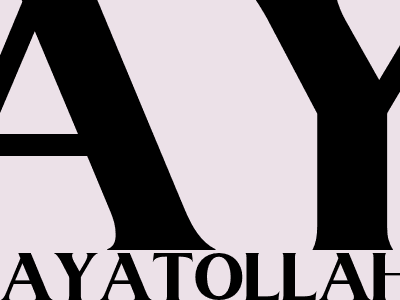
Ayatollah Ali Khamenei: Report of Deteriorating Health Spurs Preparations for Successor in Iran
Iran's Supreme Leader, Ayatollah Ali Khamenei, is reportedly in a critical health condition, prompting speculation about his successor and the potential implications for Iran's political landscape.
According to sources close to the Iranian government, Khamenei, 84, has been battling cancer and has experienced a significant decline in his health in recent weeks. While Iranian officials have not confirmed these reports, international media outlets have cited anonymous sources within the country who have raised concerns about Khamenei's ability to continue leading the nation.
Khamenei's Health and Succession
Khamenei has ruled Iran as Supreme Leader since 1989, following the death of Ayatollah Ruhollah Khomeini. He holds absolute power over the country's political and religious affairs and has played a key role in shaping Iran's domestic and foreign policies.
The Iranian constitution outlines a complex process for selecting Khamenei's successor, involving a council of experts elected by the Assembly of Experts. However, the exact criteria and procedures for choosing the next Supreme Leader are shrouded in secrecy, and there is no clear consensus on who could replace Khamenei.
Potential Successors and Power Dynamics
Several names have been mentioned as potential successors to Khamenei, including:
- Ebrahim Raisi, the current Iranian President
- Ali Larijani, a former Speaker of the Iranian Parliament
- Sadegh Amoli Larijani, a former Head of the Judiciary
- Mohammad Bagher Qalibaf, the current Speaker of the Iranian Parliament
Each of these candidates has their own strengths and weaknesses, and the political dynamics surrounding Khamenei's succession are likely to be complex and unpredictable.
Implications for Iran's Political Landscape
Khamenei's passing would mark a significant turning point for Iran, both domestically and internationally. His successor will inherit a country facing significant economic challenges, regional tensions, and ongoing negotiations with Western powers over its nuclear program.
The choice of the next Supreme Leader could have a profound impact on Iran's policies and its relationship with the rest of the world. Some analysts believe that a more moderate successor could lead to a thaw in relations with the West, while others fear that a hardline leader could escalate tensions and destabilize the region.
Conclusion
As the news of Khamenei's deteriorating health continues to circulate, the Iranian government and the international community remain on high alert. The succession process for the Supreme Leader is complex and shrouded in mystery, and the identity and policies of Khamenei's successor will have a profound impact on Iran's future.